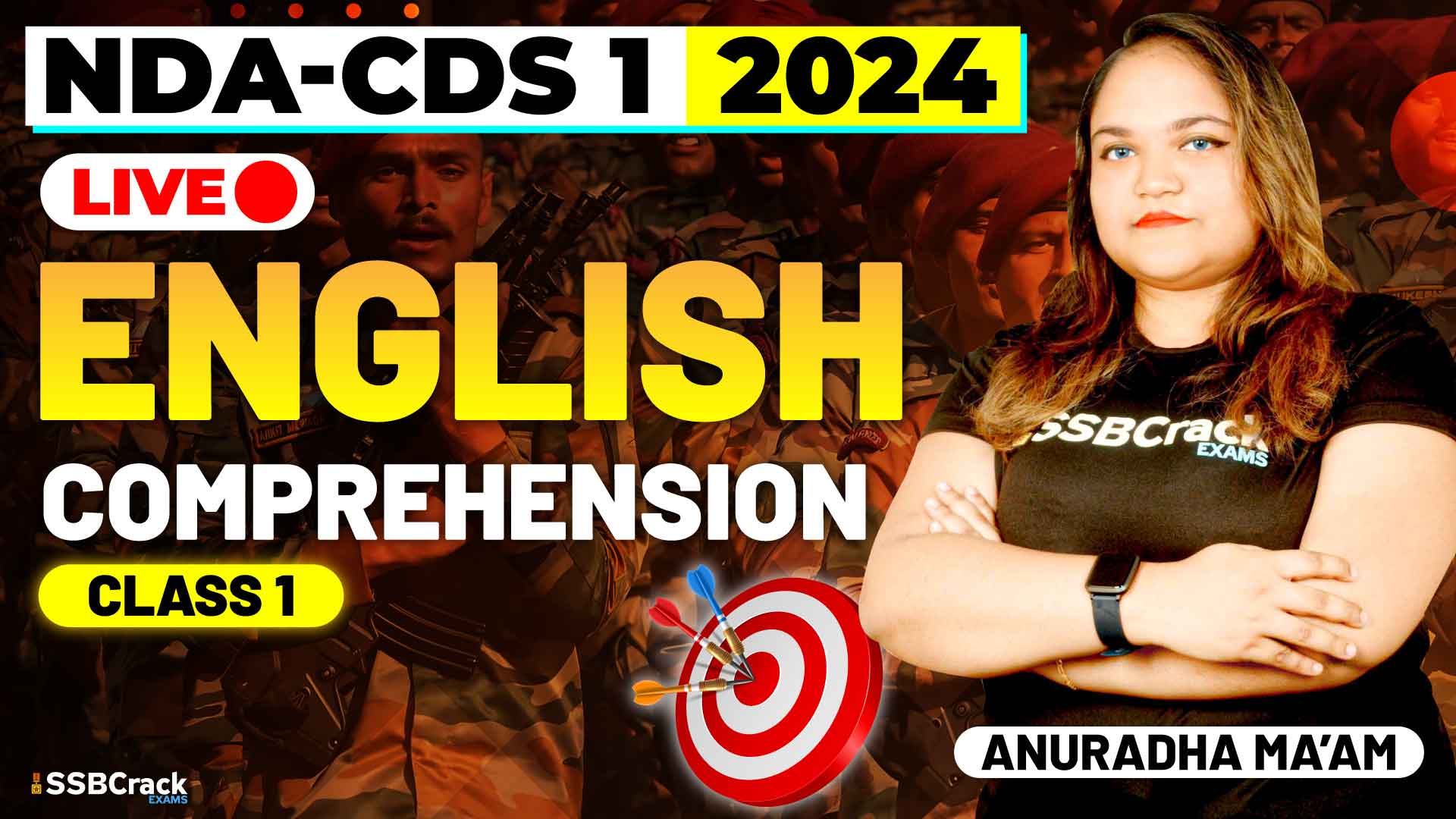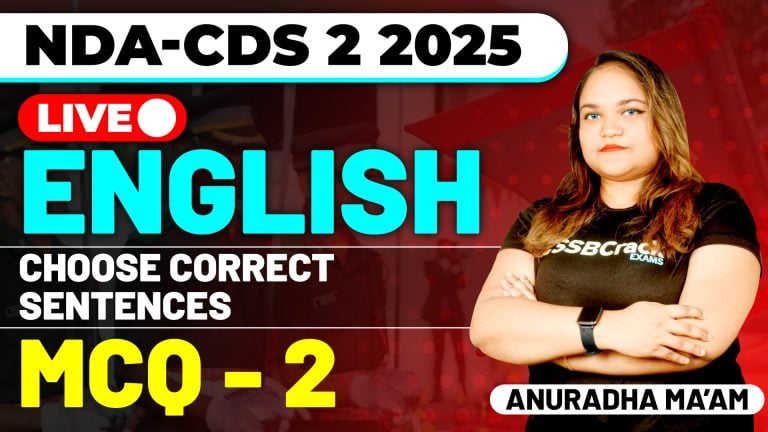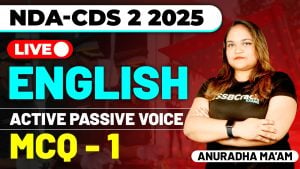The National Defence Academy (NDA) and Combined Defence Services (CDS) examinations serve as gateways to prestigious careers in the armed forces, demanding a diverse skill set from aspirants. Within the English section, the topic of Comprehension stands out as a critical aspect. This article aims to underscore the importance of mastering the Comprehension topic in NDA and CDS examinations, elucidating how this skill can significantly impact a candidate’s performance and readiness for a career in the armed forces.
The law is an enterprise that seeks to rule us all from cradle to the grave, whether as constitution confronting custom, or as custom confronting constitution, and often indeed as the diverse combinatory prowess of both. The very notion of enterprise suggests risk taking, i.e., risk as a site for both opportunity as well as failure for regulation or felicitation of approved social conduct. At the same moment, this coupling of the constitutional and custom is at the outset designed to pluralise the notion of legal literacy, a message yet to be fully constructed and conveyed coequally to those who governed us and those who would resist domination. As citizens, we are supposed to know the law made by the state, whether we intend to obey it or break it. As members of cultural and religious communities, we also need to know the norms that define our membership of these collectives.
Often, our identity and obligations as members of a political society and of diverse memberships within cultural and religious communities constitute spheres of peaceful coexistence. Often, too these collide. To decide what obligations ought to have precedence, each one of us in collision situations has to know a great deal about the law of the state and that constituting community and identity other than the political. Literacy in state law is important but never enough for an understanding of multiple sources of obligations that constantly press upon us. This invites engagement with many difficult questions including what we may want to mean by literacy from a law, domination, and resistance. Further, the question always is: how far do resources of legal literacy and out us with resources of justice for all and care of self and care for others?
Q) According to the author, legal literacy
a)needs to be interpreted and understood in consonance with elements of social custom and justice
b)needs to be interpreted and understood in consonance with elements of economic and psychological factors and law
c)needs to be interpreted and understood in terms of unjust existence of human being and justice
d)needs to be interpreted and understood in consonance with elements of Environmental Conservation and law
Ans. (a)
Q) As a citizen one is supposed to
a)make a balance between the legal aspects and cultural existence
b)give a priority to our cultural existence
c)give a priority to constitutional provisions
d)nor that knowledge about constitutional regulation is an impediment to cultural existence
Ans. (a)
Q) The above passage deals in
a)Law and Justice
b)Legal Literacy
c)Literacy and Education
d)Constitutional Law
Ans. (b)
Q) According to the writer ‘diverse combinatory prowess’ means
a)a process of evolving a legal and constitutional system of cohesive elements
b)a provision of evolving a law of customary practices by avoiding constitutional provisions
c)a provision of evolving constitutional laws by neglecting customary practices
d)a process of combining contrasting elements into a competent legal mechanism
Ans. (d)
Q) Which among the following is closest in meaning to the word ‘resistance’?
a)Conforming
b)promotion
c)defiance
d)liberating
Ans. (c)
For more questions, check out NDA-CDS 1 2024 Exam English Live – Comprehension – Class 1
- Swift Decision-Making in Dynamic Environments:
Military professionals are often required to make quick and informed decisions in dynamic and challenging environments. Comprehension exercises in NDA and CDS examinations evaluate a candidate’s ability to swiftly process and understand written information. This skill is vital for officers who may need to analyze complex situations and act decisively in a time-sensitive manner.
- Effective Communication and Command:
Effective communication is a cornerstone of success in the armed forces. Comprehension skills go beyond simply understanding written passages; they also assess a candidate’s ability to extract nuanced meanings and interpret information accurately. This precision in comprehension is crucial for conveying instructions clearly, a skill integral to leadership and command roles in the military.
- Tactical Reading and Information Retrieval:
Comprehension exercises often include questions that require candidates to retrieve specific information from the given passage. Military officers must be adept at tactical reading, quickly locating and understanding critical details. Mastering Comprehension equips candidates with the ability to efficiently extract information—an invaluable skill in situations where swift information retrieval is essential.
- Analytical and Critical Thinking:
Comprehension passages are designed to test not only a candidate’s ability to understand information but also their analytical and critical thinking skills. Military leaders are often faced with complex scenarios that demand thoughtful analysis and strategic planning. Comprehension exercises prepare candidates for such challenges, fostering the ability to analyze information critically and draw well-informed conclusions.
- Real-World Relevance:
The scenarios presented in Comprehension passages often mirror real-world situations, allowing candidates to engage with content that resonates with the challenges they may encounter in the armed forces. This not only enhances their preparation for the examination but also aligns with the practical demands of military service.
Conclusion:
In conclusion, the significance of the Comprehension topic in NDA and CDS examinations extends far beyond its role as a standard examination component. It serves as a comprehensive evaluation of a candidate’s decision-making abilities, communication skills, tactical reading proficiency, and analytical thinking—all essential qualities for success in the armed forces. Aspiring candidates should approach the study of Comprehension with dedication, recognizing its pivotal role not only in securing points in the English section but also in preparing them for the intellectual and strategic demands of a successful career in the armed forces.





















